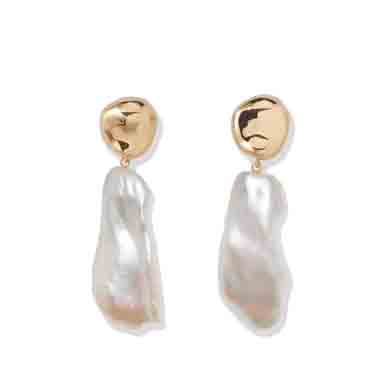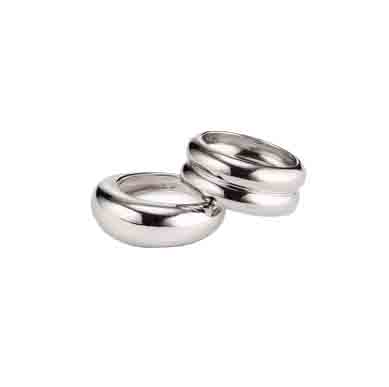Goods Doing Good
As sustainability becomes a requisite for consumers, shoppers are putting pressure on consumer-facing brands. We’ve rounded up some of the companies prioritizing the planet in the most effectual and distinctive ways.
Parisian sneaker brand Veja has championed sustainability and fair trade since launching in 2004. The eco-friendly kicks, including the Condor sneaker (1), are made in Brazil, and by buying the shoes’ rubber directly from seringueiro communities in the Amazon rain forest, the company is helping protect the rainforest by increasing its economic value.
Brooklyn-based Air Company has created the world’s first carbon-negative vodka (2) by developing a unique process that captures excess carbon from the air and turns it into ethanol.
Westman Atelier, founded by celebrity makeup artist Gucci Westman, is a clean beauty line that is not only luxurious but sustainable as well. Her brushes are crafted with sustainable hardwood birch from a Forest Stewardship Council–certified forest in Eastern Europe, including the lip brush for her recently launched Lip Suede (3). Also leading the charge in nontoxic wellness is Corpus Naturals, whose natural deodorants, including Santalum (4), are produced using mainly solar power; its sticks and boxes are made with hydroelectric energy.
Nearly all discarded clothing ends up in a landfill, where it can leak dangerous chemicals into the earth, even though about 95 percent of those textiles could be recycled or reused. Knickey has developed a program to ameliorate this unfortunate outcome: you can ship them your old knickers (they accept any brand) for recycling, and they’ll include a free pair of Knickeys, such as the Mid-Rise Hipster (5), with your next order.
Veles recently launched a water-based All-Purpose Cleaner (6) derived from food waste. The container is also refillable.
Knitwear purveyor Naadam uses factories powered by clean energy for manufacturing. The company also sources all of its cashmere, including for its Luxe Unisex Cashmere Sweater (7), from Mongolia’s Gobi Desert, contributing to protecting the region’s ecology.
When Marcella Cacci founded One Ocean in 2018, she had two core tenets: to supply people with effective, clean skin and body care, including Body Boost Duo (8), and to use her brand to help protect the oceans that serve as her inspiration. Before the company officially launched, it donated $250,000 to Oceana, an ocean conservation nonprofit.
Portland’s Tandem Coffee Roasters has a new “Portland, Maine” cup in collaboration with Miir (9). According to owner Will Pratt, “About a year ago we realized that single-use cups are just weird. In order to bring this weirdness to light, we decided to treat the use of single-use cups as abnormal instead of normal. We achieved this by lowering all drink prices by 25 cents and charging a 25 cents fee for each nonreusable cup. And it worked! Sales are up, and single-use cup habits are down.”

1 
2 
3

4 
5 
6

7 
8 
9
Zero-Waste Metalwork
Sisters Morgan and Jaclyn Solomon, founders of Agmes, find inspiration for their handmade jewelry everywhere, including urban landscapes and modern art. They use nearly all recycled metals and are committed to ensuring that none goes to waste in order to keep their environmental footprint as small as possible.

Baroque Patrice Earrings 
Grace Collar 
Luca Earrings

Domed Ring Set 
Stella Earrings
Sustainable Swim
Andie creates quality suits and swim shopping experiences designed with you in mind. While sustainability has been important to their team and community from the very start, they’ve put in the work to get it just right. A year in the making, their new Eco fabric is made of recycled polyester (the kind milled from post-consumer plastic bottles) with a touch of spandex for compression and comfort.
They launched Eco fabric as part of The Eco Collection, their largest launch to date. The Eco Collection features Andie’s first print and their debut maternity and kids lines, all shot on the Andie team.
Living Healthier, Inside and Out

Symprove Live & Active Multistrain Probiotic Liquid Supplement is a water-based food supplement containing four strains of live and active bacteria that are delivered to the gut to support the microbiome. Symprove’s commitment to the environment and sustainability is threefold: they use zero-waste barley, utilizing the grain from germination all the way through to its becoming fertilizer. Symprove has invested in solar panels for their entire site and aims to produce 80% of their energy this way. And finally, the Symprove office uses ‘grey’ water (rainwater) to flush all its toilets, reusing and recycling water that would otherwise be discarded. In additional to effectively supporting gut health, they remain committed to making the planet stronger and as well.




